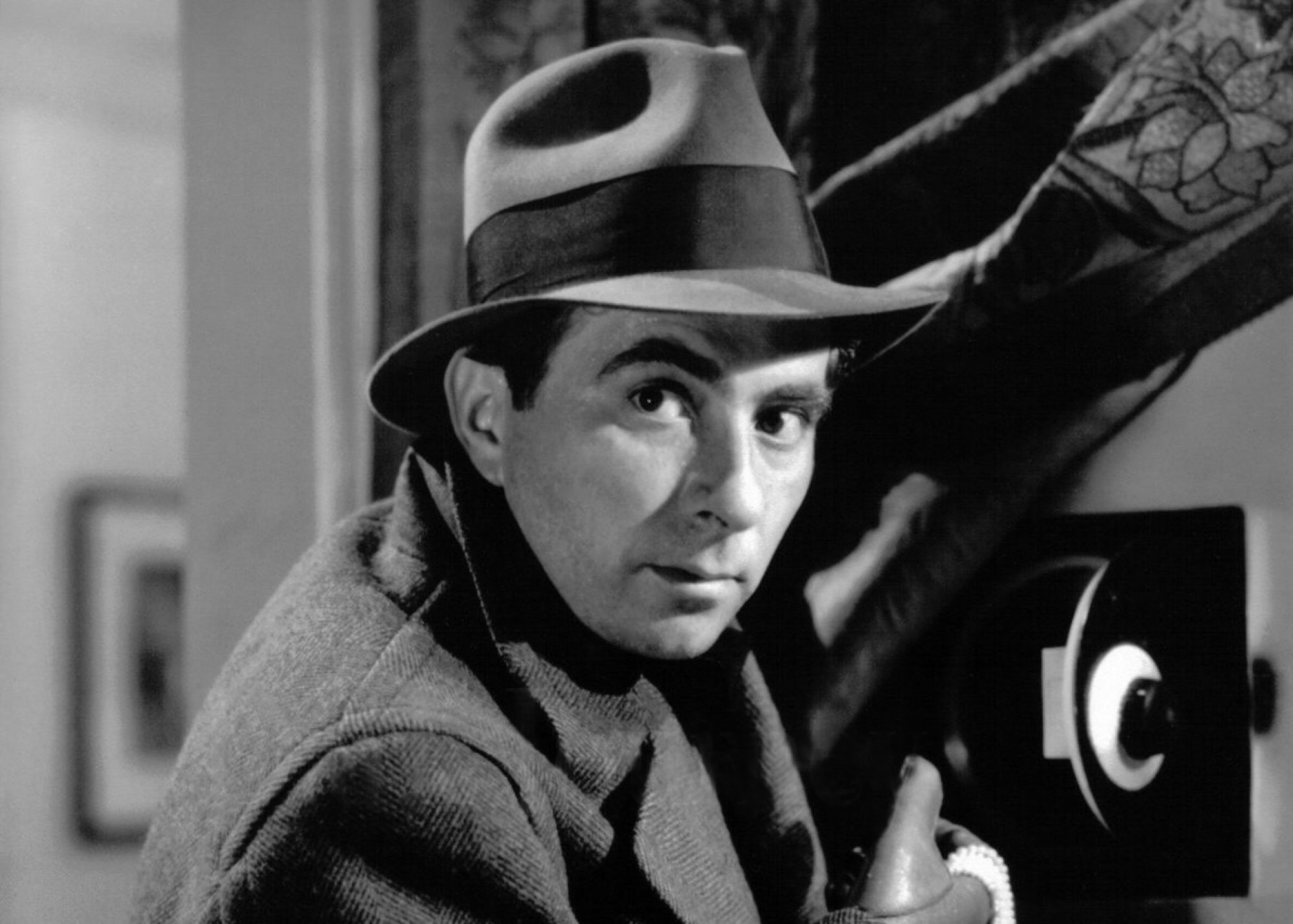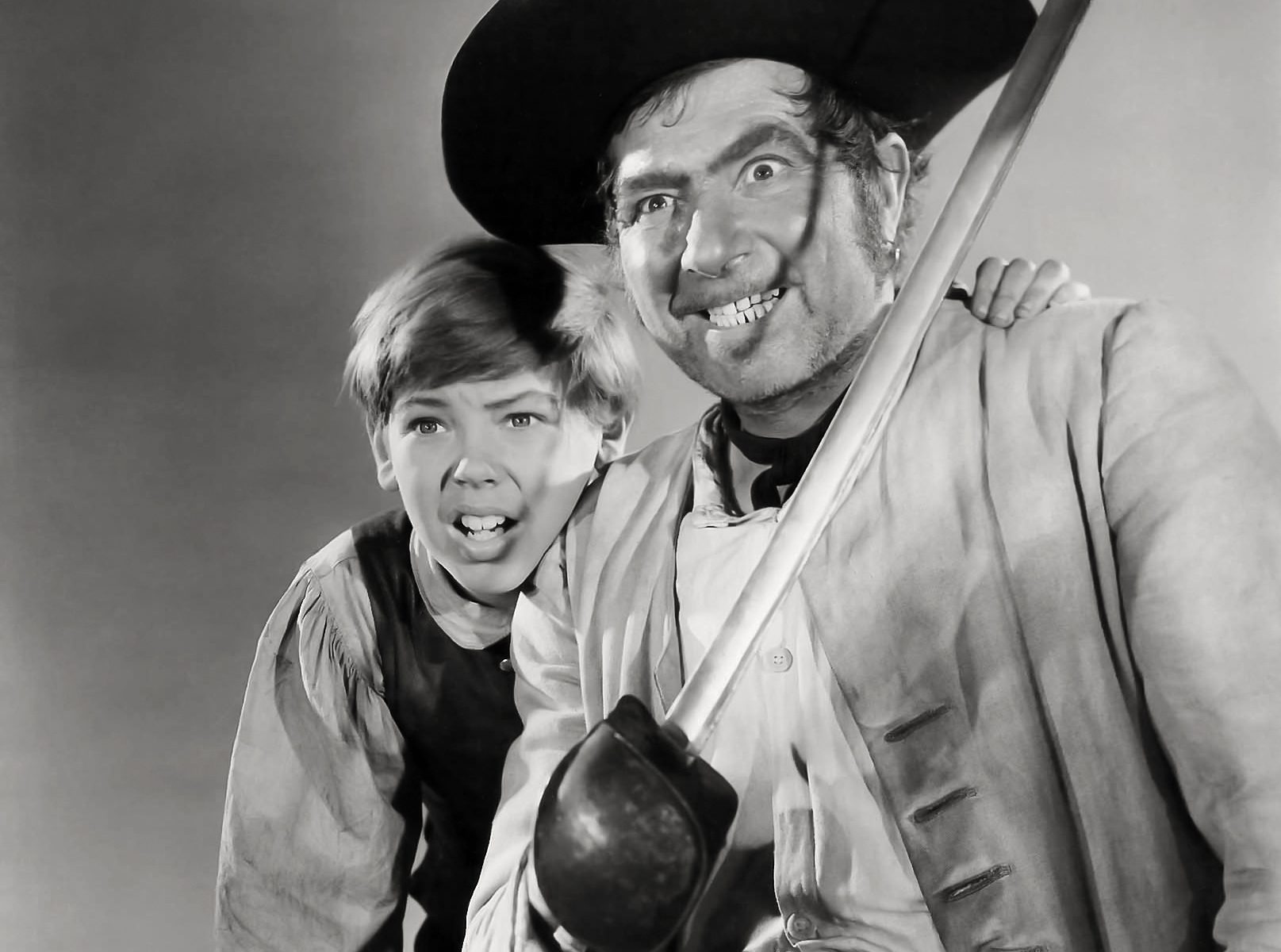Robert Newton (1 June 1905 – 25 March 1956) was an English stage and film actor. Along with Errol Flynn, Newton was one of the most popular actors among the male juvenile audience of the 1940s and early 1950s, especially with British boys. Known for his hard drinking lifestyle, he was cited as a role model by the actor Oliver Reed and the Who’s drummer Keith Moon.
Newton is best remembered for his portrayal of the feverish-eyed Long John Silver in the 1950 film adaptation of Treasure Island, the film that became the standard for screen portrayals of historical pirates. He would continue to portray Blackbeard in 1952 and Long John Silver again in the 1954 film of the same name, which spawned a miniseries in the mid ’50s. Hailing from Dorset in the West Country of Southern England, his exaggeration of his West Country accent is credited with popularising the stereotypical “pirate voice”.Newton has become the “patron saint” of the annual International Talk Like a Pirate Day.
Robert Guy Newton was born in Shaftesbury, Dorset, a son of the landscape painter Algernon Newton, R.A. He was educated in Lamorna near Penzance, Cornwall, then at Exeter School and St Bartholomew’s School in Newbury, Berkshire. His acting career began at the age of 16 at the Birmingham Repertory Theatre in 1921 and he followed this by performing in many plays in the West End of London, including Bitter Sweet by Noël Coward. He also appeared in Private Lives on Broadway, taking over the role from his friend Laurence Olivier. From 1932 to 1934, he was the manager of the Shilling Theatre in Fulham, London. In 1939, he played Horatio to Laurence Olivier’s Hamlet at the Old Vic, in a production that also included Alec Guinness and Michael Redgrave. During the war he starred in the West End in No Orchids for Miss Blandish. His final performance on stage was in the 1950 production of Gaslight with Rosamund John at the Vaudeville Theatre.
During the Second World War, Newton served in the Royal Navy on board HMS Britomart, which served as an escort ship on several Russian convoys. He also starred in a number of notable films. His film roles included various ruffians and villains, such as Bill Walker in George Bernard Shaw’s Major Barbara (1941), Long John Silver in Walt Disney’s Treasure Island (1950), Bill Sikes in David Lean’s 1948 film version of Oliver Twist, and the acid bath murderer Dr. Clive Riordan in Obsession (1949). There were also roles that displayed his versatility. In Alfred Hitchcock’s film Jamaica Inn, he played a virtuous law officer. He also portrayed disciplinarians such as Inspector Javert in the 1952 Les Misérables, Dr. Arnold in the 1951 film version of Tom Brown’s Schooldays, and Inspector Fix in his last film, Around the World in 80 Days (1956).
Newton appeared in major roles in two films based on the novella The Vessel of Wrath by W. Somerset Maugham. He played the Dutch contrôleur in the 1938 version (released in the United States as The Beachcomber), and the lead role of Edward “Ginger Ted” Wilson in The Beachcomber (1954). He starred as the Scottish hatter, James Brodie, in Hatter’s Castle, a 1941 film based on the novel by A.J. Cronin. He also played Ancient Pistol in Laurence Olivier’s 1944 film of Henry V and Lukey in Carol Reed’s Odd Man Out; this performance was later immortalised in Harold Pinter’s play Old Times. A good example of Newton playing a sympathetic lead role is Noël Coward’s This Happy Breed directed by David Lean in 1944.
He again played Long John Silver in a 1954 Australian-made film, Long John Silver. It was shot at Pagewood Studios, Sydney and directed by Byron Haskin, who had directed Treasure Island. The company went on to make a 26-episode 1955 TV series, The Adventures of Long John Silver, in which Newton also starred.
While filming in Australia in 1954, Newton was declared bankrupt with debts in the UK of £47,000.
With his strong West Country accent, Newton portrayed Bristol’s other famous pirate Blackbeard in the 1952 film Blackbeard the Pirate directed by Raoul Walsh. Newton suffered from chronic alcoholism and died in 1956, aged 50, following a heart attack in Beverly Hills, California. He had married four times and had three children: Sally Newton (born 1930), Nicholas Newton (born 1950)and Kim Newton (born 1953). After some court battles, Newton’s elder son was placed in the custody of his aunt and uncle.
He was interred in the Westwood Village Memorial Park Cemetery in Los Angeles. Years later, his son Nicholas Newton scattered his father’s ashes in the sea in Mount’s Bay, Cornwall, near Lamorna in the south western tip of England, where he had spent his childhood.

